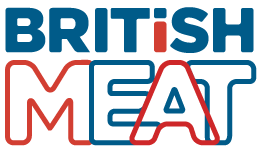Standards Matter
When it comes to standards and safeguards in food production, we’re lucky to live in a part of the world that has some of the highest.
From farm to fork our farmers, producers and food processors must maintain stringent hygiene, animal welfare and food safety standards, which makes British produce synonymous with quality and sustainability.
Over the past few decades the British meat industry has been sensitive to the changing preferences of consumers, making incremental changes that have resulted in a much better regulated and more transparent meat industry.
Food standards has become a hot topic in recent months as the picture emerges of what concessions we may need to make in order to strike new trade deals. Chlorinated chicken and hormone treated beef have become shorthand for the concerns we all feel over animal welfare and the environmental impact of the food we eat. British meat is the answer to those concerns but there’s always more we can be doing.
Chlorinated chicken and hormone treated beef have become shorthand for the concerns we all feel over animal welfare and the environmental impact of the food we eat.
In this section you can find out what the industry is doing to maintain and drive standards higher through technology and innovation, robust enforcement for when things go wrong and quality assurance to ensure we do it right.
Technology
Innovative tech solutions are being developed and adopted at an increasing rate across the industry, linking together the entire food chain. An example is the new Livestock Information Service pioneered several years ago by Norfolk Farmer John Cross and BMPA’s Nick Allen and developed between the NFU, AHDB and Defra. It is able to track animal movements in real-time throughout the whole supply chain down to an individual animal.
It brings huge benefits not just in the form of better and more targeted animal health programs but to consumers for whom food safety, animal welfare and the origin of food are of increasing importance. It will also be invaluable to Government who will be much better able to respond in the event of an animal disease outbreak.
But, with the right permissions, this could go further. By sharing this data throughout the supply chain and linking into other systems and technologies like blockchain, it would offer the opportunity to drive value and build on the UK’s reputation for quality and safety which will be so important as we strike out to secure access to new markets.
Enforcing the standards
Every stage of meat production in the UK from the conditions under which animals are reared, transported and slaughtered through to the processing, packaging and storage of meat products is governed by strict rules and standards which have become more stringent over time.
The Food Standards Agency (FSA) sets these rules and enforces them via a large network of inspectors, official veterinarians, auditors and local authority health and safety officers. These inspections happen on a regular basis so any company that doesn’t meet the standards can be quickly identified.
But, just like in other industries, there will be a handful of operators who don’t follow the rules either deliberately or by accident.
If bad practices are unearthed the company involved is usually given the opportunity to put things right. But, if they fail to do this or in the most serious cases, the FSA has the power to shut them down.
It’s the power of the Food Standards Agency to stamp out wrong-doers that underpins our high standards here in the UK.
Quality Assurance
Alongside the regulatory standards, the UK also has a number of quality assurance schemes that go over and above current legislation and set a higher benchmark, encouraging not just compliance but constant improvement.
One such scheme is the Red Tractor/BMPA Pork Scheme which provides quality assurance to retailers and consumers about pig welfare, food safety, provenance and traceability of the products that members of the scheme produce.
There are many others covering a huge range of quality, nutrition, sustainability and welfare concerns. If you’re interested in finding out more a good place to start is the Love British Food website
